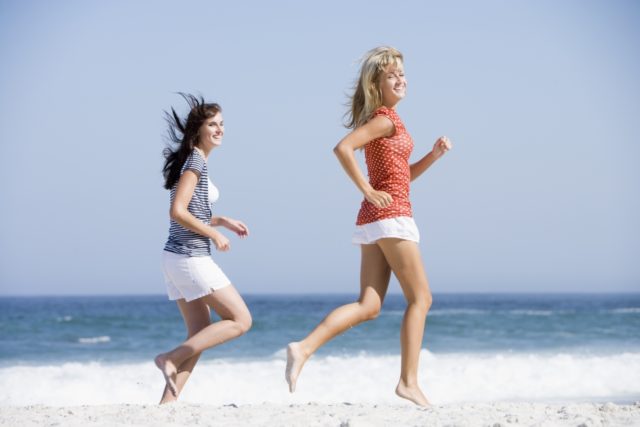
The beach may seem like an inviting place to run on a cool summer morning, but is running on the sand good for your body?
It can be, but it’s important to know the challenges and potential injuries that some beach runners experience, said Dr. Kelton Vasileff, an orthopedic surgeon at The Ohio State University Wexner Medical Center.
“Running on the beach can certainly be a good thing,” Vasileff told Live Science. “It’s definitely different than running on the pavement, a track or trails with soft surfaces.”
For starters, sand can be a challenge because it has an uneven surface and constantly shifts under your feet. “As you push off, you’re going to lose some of your push as the sand moves,” Vasileff said. “So, you’re not going to be able to propel yourself forward as you would on a track or pavement.”
But this unevenness has an upside: It gives your body an extra workout, forcing you to engage muscles that don’t get as much use during runs on firm surfaces. For instance, your feet, ankles, core abdominal muscles, lower back and the muscles around your hips might feel sorer and more tired than usual after a beach run “just because that surface is constantly moving and changing step to step,” Vasileff said.












